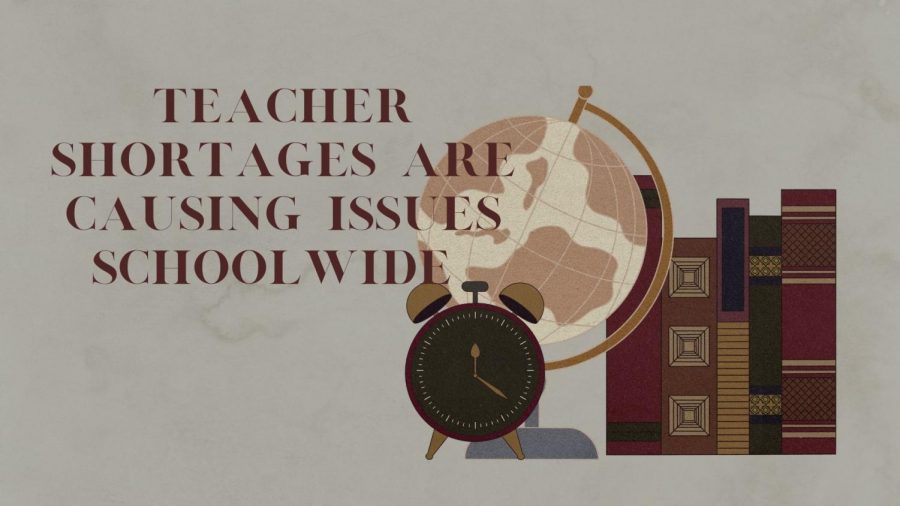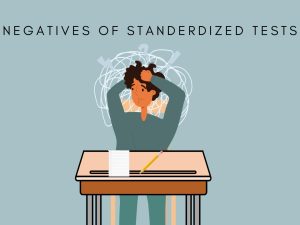Wakefield responds to teacher shortage
Starting this school year many schools across the nation have suffered from a lack of teachers, which has lead to consequences for the rest of the school.
December 16, 2021
Recently, schools across the nation have suffered from a sudden drop in the supply of teachers available. Even for WHS, this teacher shortage has become a large handicap in the classroom and learning atmosphere.
Among the many departments suffering from the shortage, the special education department is one of the most affected. Even locally in North Carolina, schools are suffering from a low supply of special education teachers in particular. In early November, public schools in North Carolina listed a total of more than 10,000 vacancies on their online job boards, with 17% in special education alone. This is concerning because substitute teachers filling in for those vacancies may not be equipped with the resources necessary to create a safe and healthy space for special education students. It is in these classes that we see the teacher shortage at its most extreme, with empty classrooms and high-stress environments.
The shortage is not only affecting special education classes, however. Freshman Trina Ly’s third-period Earth Science class was left without a teacher at the beginning of the school year, and she feels her class’s environment was disrupted by the shortage.
“When you have [substitutes] all week, you start to see how everyone behaves. Some people are too loud and don’t do their work,” Ly said. “It’s honestly frustrating. We’re trying to learn, and we should be able to have our own teacher.”
Without teachers in the classroom, students are usually left doing work on their own. Having temporary substitutes instead of a permanent teacher is often of little help to students already struggling, as substitutes usually do not have the freedom to teach their own lessons while a permanent teacher does.
Student Zahmya Sanders was in a French class without a teacher for the first few weeks of school, and learning with only substitutes was understandably very difficult for her class.
“It was hard to learn because [substitutes] kept getting switched out and we couldn’t really keep up. For three weeks we didn’t have a teacher, and while we did learn some stuff in those three weeks, we didn’t learn things in the way we’re learning them now,” Sanders said.
The lack of teachers is difficult to fix because not many people are willing to fill the positions. A report by the Learning Policy Institute shows that while teacher demand has gone incredibly high over the past few years, the number of teachers available has been gradually dropping for quite some time. This year, however, teacher supply is dramatically low, most likely due to COVID-19. Assistant Principal Beth Keefer has been working hard to hire new staff, but she feels the truly hard work is being done by the teachers already working at WHS.
“[Teachers] have lost planning time during the day to cover. For a while, they were having to cover quite a lot,” Keefer said. “Some department chairs had to make lesson plans and arrange materials for multiple vacancies. All of this took time and effort that teachers didn’t really have, but it had to be done to support the students.”
School staff members such as art teacher Dawn Valentino have had to monitor classes without teachers during their planning periods.
“It can become very stressful when you lose the valuable time that you have to plan,” Valentino said. “I’ve talked to some beginning teachers and it’s very stressful for them because they need every minute of their planning period to be able to prepare for the next day.”
With their planning periods being taken up by having to monitor students, some teachers such as Psychology teacher Christen Strickland find it challenging to balance this sudden overload of responsibility with their regular work teaching,
“We have so many other responsibilities and priorities on top of managing a classroom and staying on top of lesson planning and delivering content to our students,” Strickland said.
The teacher shortage has left many wondering if a change is necessary for a better academic experience. Fortunately for Wakefield students, only two vacancies exist in the hard-to-fill areas of science and special education.
“If nothing changes at all, there’s going to continue to be a shortage because the stress levels of some teachers [will] push them out of the profession,” Valentino said. “The shortage is only going to increase if the problem isn’t looked at seriously.”










